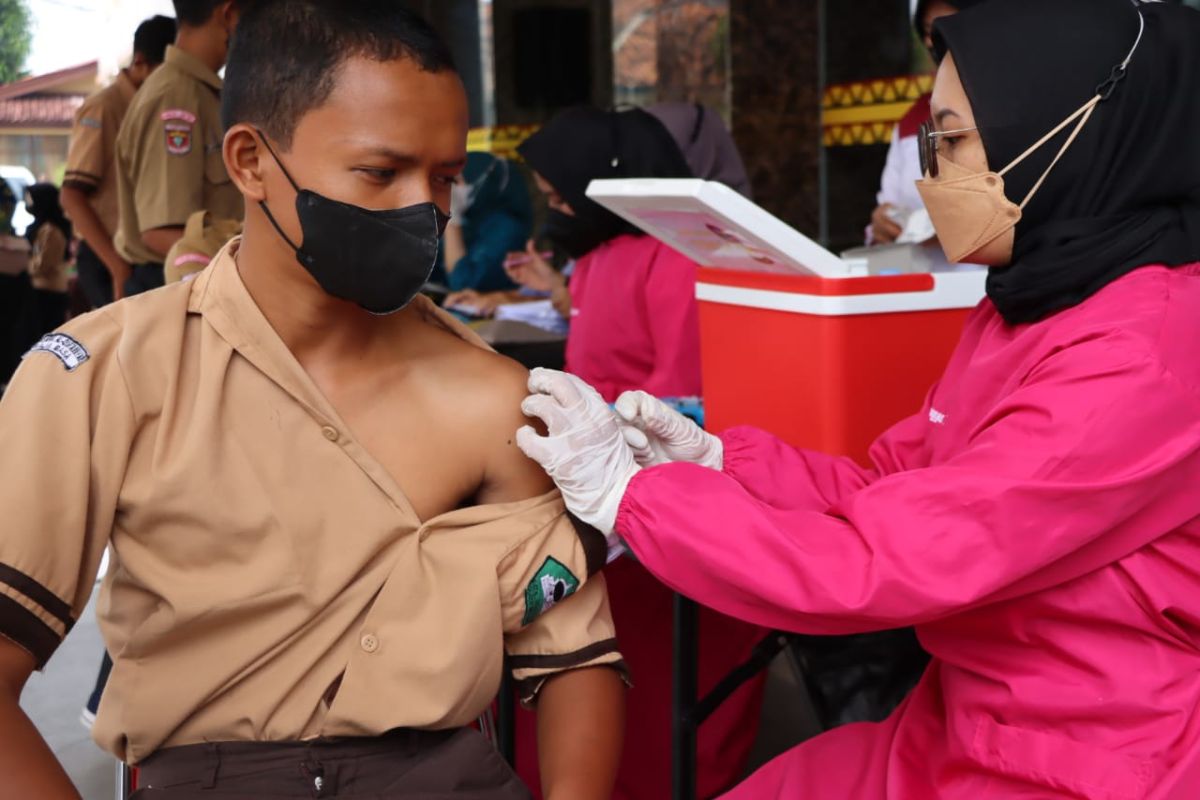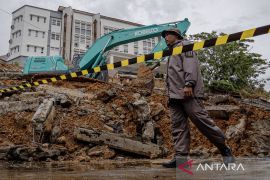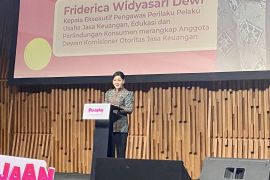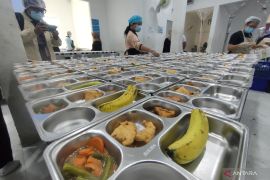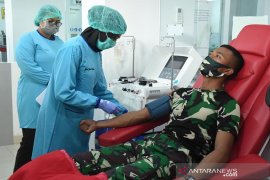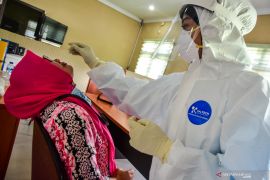In order to build a world that is more resilient to pandemics and future shocks, Indonesia urges (all countries) to strengthen the global health architectureJakarta (ANTARA) - COVID-19 caused global panic when the disease caused by the SARS-CoV-2 virus spread to almost all countries globally.
More than two years since the first infection was reported, the pandemic is still causing an acute global emergency, with a total of 481,765,671 confirmed cases and 6,127,981 deaths recorded globally as of March 29, 2022, based on data from the World Health Organization (WHO).
In Indonesia, COVID-19 cases have continued to decline with the number of positive cases and the daily death rate from the disease recording a declining trend. Meanwhile, the hospital occupancy rate has dipped below 10 percent.
Health Minister Budi Gunadi Sadikin said that Indonesia is currently in a transition period from a pandemic to an endemic phase.
The situation has continued to improve due to the joint hard work of the government and all elements of society, especially health workers who are at the forefront of handling the COVID-19 pandemic.
Related news: G20 HWG delegates agree to harmonize global health protocols
"We believe that the contribution of health workers from various professions is very significant in controlling the pandemic and God willing, we will begin the transition from pandemic to endemic," said the minister at a press conference on March 29, 2022.
Besides continuing to strive for better handling of COVID-19 patients and accelerating vaccinations, which currently have reached 158,830,466 or 59.5 percent of the total population, the Indonesian government is also encouraging all parties to focus on building a better health system so that potential pandemics in the future can be handled better.
Unfortunately, recovery from the COVID-19 pandemic has not been seen in all countries, especially low-income countries. This has created gaps and risks to global health for the future, as the pandemic in one country will not end as long as an increase in cases continues in other countries.
Data from Johns Hopkins University and Medicine shows that developed countries such as Austria, China, Denmark, Japan, and others have vaccinated more than 70 percent of their total population.
Meanwhile, low-income countries such as Burkina Faso, Brunei, Cameroon, Chad, and others have vaccinated less than 10 percent of their total population.
According to the WHO, a safe and effective COVID-19 vaccine was developed in only a short time. However, the SARS-CoV-2 virus is moving faster than the global distribution of vaccines.
Therefore, global failure to distribute vaccines equitably could impact some of the world's poorest and most vulnerable countries. The risk of new variants emerging in countries that have not received full doses of the vaccine could also increase and affect other countries, slowing global recovery.
Related news: Health minister highlights improvement in COVID-19 pandemic handling
Hence, in the midst of the gap in vaccination rates globally, Indonesia, as President of the G20 2022, has raised three priority issues at the forum, including the need to build a global health architecture.
The need for strengthening the global health architecture was also conveyed by President Joko Widodo at the 2021 G20 Summit.
"In order to build a world that is more resilient to pandemics and future shocks, Indonesia urges (all countries) to strengthen the global health architecture," the President said on October 30, 2021.
Global health system
For its Presidency of the 2022 G20 Forum, Indonesia has chosen the theme "Recover together, recover stronger.” This theme seems to reflect Indonesia's hope that the world can jointly recover from the COVID-19 pandemic and rise together to become stronger in the face of future health crises. This hope is underlined in the three priority issues.
Spokesperson for COVID-19 vaccinations at the Ministry of Health, Siti Nadia Tarmizi, said on March 23, 2022, that to strengthen the global health architecture, there are three priority sub-issues that need to be addressed: the need to build a global health resilience system, harmonization of global health protocol standards, and development of study centers as well as manufacturing for prevention, preparation, and response to impending health crises.
Given the current situation of the COVID-19 pandemic, Tarmizi said that the development of a global health resilience system is very necessary since the current global health architecture is not sufficient to facilitate capacity resilience and even financing to respond to the pandemic.
The difference in the capacity of each country to detect and monitor emerging pathogens using genomic surveillance to prepare a more effective response has also prompted Indonesia to seek further collaboration among G20 member countries to realize a global health architecture that would be more inclusive, cooperative, responsive, and more agile in dealing with various health issues in the future.
To support this goal, the leaders of the G20 member countries have deemed it necessary to support the acceleration of access to treatment and infrastructure for the prevention of COVID-19, or COVID-19 ACT accelerator tools, such as test kits, vaccines, and medical kits for the treatment and management of COVID-19 patients.
This collaboration is expected to help other countries, especially low- and middle-income countries, in responding to future health threats and building stronger and more sustainable national health systems.
Further, global health protocol standards also need to be harmonized so that economic activity and trade between countries are not hampered by differences in health protocol standards that exist in each country.
In the meantime, another important issue that needs to be pursued to realize a more inclusive and responsive global health architecture is the need to develop study centers and manufacturing to prevent and prepare for the best response to future health crises.
Related news: Indonesia G20 to expand global health research center development
The world will likely need to expand health research and manufacturing facilities globally so that pandemics and other health crises in the future can be prevented, while countries can be more prepared and able to respond more quickly to potential health crises.
Tarmizi explained that mRNA vaccine technology allows for the development and faster discovery of cheaper and safer vaccines, so that pandemics can be contained more quickly.
Hence, the establishment of a regional manufacturing center and a regional research collaboration center is very important.
"Without a strong political commitment to build a stronger global health system, countries will find it more difficult to get out of difficult situations as a result of the COVID-19 pandemic," she said.
Therefore, common awareness to strengthen the resilience of the global health system is urgently needed in order to realize an equitable and comprehensive recovery.
Related news: Harmonizing health protocol standards expected to help boost mobility
Related news: Indonesia pushes G20 to make breakthroughs for joint economic recovery
Editor: Fardah Assegaf
Copyright © ANTARA 2022
